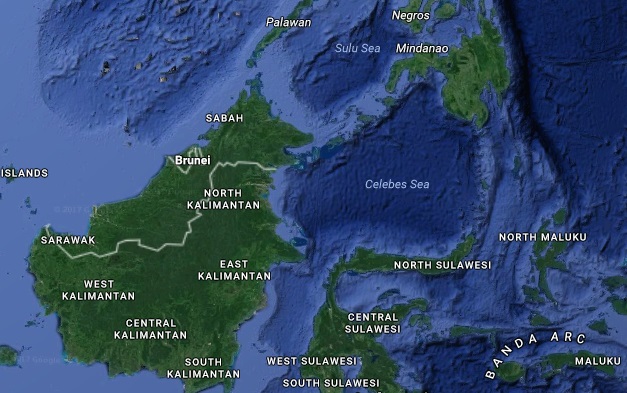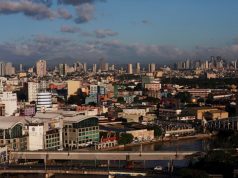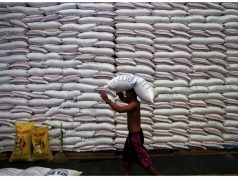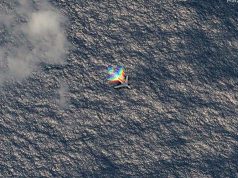SINGAPORE — Militants, pirates, drug traffickers, gun runners — the waters between Borneo and the southern Philippines have them all. But as an Islamic State faction burst on the scene in recent weeks, this corner of Southeast Asia plumbed new levels of insecurity.
The mostly Muslim countries of Indonesia and Malaysia, and those with sizeable Muslim minorities, like the Philippines, have been on high alert for fighters returning home from Islamic State frontlines in Syria and Iraq.
So when dozens of Malaysians, Indonesians, Arabs and Chechens showed up in Marawi City fighting alongside the Maute group, a Philippine franchise of Islamic State, a nightmare scenario suddenly took shape.
The danger of global jihadis establishing a base in the Philippines, running satellite cells to launch attacks across Southeast Asia, made governments in the region realize just how vulnerable they could be.
“It’s easy to jump from Marawi to Indonesia and we must all beware of sleeper cells being activated in Indonesia,” General Gatot Nurmantyo, Indonesia’s military chief said on Monday.
According to the general, there are Islamic State sleeper cells in almost all of Indonesia’s 34 provinces.
Indonesia has called for a conference with the Philippines and Malaysia to discuss events in Marawi — where the military, backed by U.S. special forces, is still battling after more than three weeks to retake the town from fighters led by the Maute brothers.
So far, Islamic State-inspired attacks have been relatively small-scale in Indonesia, the country with the world’s largest Muslim population. But they have become more frequent. Last month, suicide bombers killed three police officers at a Jakarta bus station.
Malaysia, meanwhile, has used draconian security laws to detain scores of suspected militants and Islamic State sympathizers.
Air and sea
Next week, the three countries, with Singapore’s assistance, will begin joint air surveillance over the Sulu Sea, using reconnaissance planes and drones, and enhance joint naval patrols.
Their navies planned joint patrols last year after a spate of kidnappings by Abu Sayyaf, a well-established militant group that has declared support for Islamic State. But there are plenty of gaps to fill.
“We don’t have communications via radio at this point. We conduct patrols in our own territory. We have not discussed exchanging personnel,” said First Admiral Ferial Fachroni, commander of Indonesia’s Tarakan naval base in North Kalimantan.
He told Reuters joint operations would begin this month. Situated on Borneo’s northeast coast, Tarakan is the nearest Indonesian naval base to kidnappers’ hunting grounds in the Celebes and Sulu Seas.
Keeping tabs on hundreds of merchant ships, fishing boats and ferries plying routes between the islands, deciding when and who to stop and search will be a tall order even for three navies working together.
The archipelagos’ heavily forested coves and inlets provide excellent cover for any fast vessel looking to escape closer scrutiny.
“The Sulu Sea area has always had sporadic incidents like kidnappings of tourists before, but starting last year and this year, it has really gone up,” Noel Chung, the Kuala Lumpur-based Asia head of the International Maritime Bureau, said.
“They started off with tugboats and went on to merchant ships, so they’re targeting big ships out at sea. It’s different from years ago when the attacks were more localized.”
Chung saw comparisons with the Gulf of Aden, where Somali pirates operate, but the difference is that the Sulu Sea is not a major trading route so the international community is disinclined to invest in providing security.
Experts say the number of vessels needed to police the seas and costs incurred would be prohibitive.
‘Weak link’
Despite the long history of militancy and banditry in the area, it has taken the Philippines, Malaysia and Indonesia a long time to pool resources.
Largely dormant territorial disputes, mutual mistrust, and limited capabilities have all played a part retarding closer cooperation.
But seeing the black flags of Islamic State raised in Mindanao could have shocked the region’s governments into moving from cooperation to actual collaboration.
“There are still some lingering trust issues but now there is also an understanding of the consequences if they don’t develop this collaboration,” said Singapore-based security analyst Rohan Gunaratna.
Beyond enhancing air and sea patrols, the countries’ security agencies need to coordinate better and act faster on shared intelligence.
A Malaysian government official said that while information was shared on militant suspects, there was some frustration over a perceived lack of follow up in the Philippines.
“One of the challenges is tracking militants once they’re in the southern Philippines. Only the Philippine army can confront them on land,” the Malaysian official said, declining to be identified because of the sensitivity of the issue.
Philippine officials said security agencies are “doing everything” to address the surge in militancy in Muslim-majority areas of the mostly Catholic country.
“This is a holistic effort, not only in the military but in the government,” Armed Forces chief General Eduardo Ano told reporters last week.
Describing the Philippines as a “weak link,” regional terrorism expert Sidney Jones criticized a lack of cooperation between its police, military and intelligence agency.
“More so than other Southeast Asian countries, the security agencies are completely silo-ized,” Jones said.
“The fact that the Philippines has been dealing with insurgencies for so long meant that it’s somewhat blinded to this new phenomenon of pro-IS groups,” she added. (Additional reporting by Agustinus Beo da Costa in Jakarta, Neil Jerome Morales in Marawi City, Philippines and Rozanna Latiff in Kuala Lumpur)










